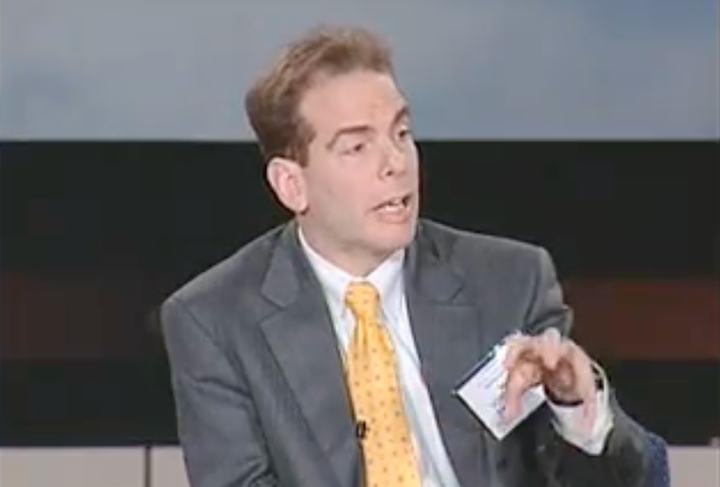Illegal Raids Against Kansas Newspaper: Special Prosecutors Clear Police, Officials
"Evidence strongly suggests" police and law enforcement officials believed they were "investigating criminal acts," special prosecutors claimed

The following article was made possible by paid subscribers of The Dissenter. Become a subscriber with this special offer and support independent journalism on press freedom.
Special prosecutors cleared police of criminal wrongdoing when they carried out illegal raids against a community newspaper in a small town in Kansas called the Marion County Record.
“[T]here is no evidence that Marion law enforcement agents recognized the inadequacy of the investigation or intentionally or knowingly misled either other law enforcement agents or the court,” Sedgwick County District Attorney Marc Bennett and Riley County Attorney Barry Wilkerson claimed. “The evidence strongly suggests they genuinely believed they were investigating criminal acts.”
"It is not a crime under Kansas law for a law enforcement officer to conduct a poor investigation and reach erroneous conclusions," the special prosecutors asserted.
Judge Laura Viar, the magistrate who authorized the search warrants for the raids, was also cleared of any criminal wrongdoing, even though it was recently reported that Viar may have deliberately misrepresented key facts to ensure the Kansas Commission on Judicial Conduct did not hold her accountable.
The special prosecutors did, however, recommend that Cody be charged with “obstruction of judicial process” after the raids, and they affirmed that the Record and its staff had committed zero crimes while engaged in journalism.
“While we welcome the news that the former police chief who orchestrated the raid, Gideon Cody, will be criminally charged, he should’ve been charged with more than after-the-fact obstruction—the raid itself was criminal,” Seth Stern, an advocacy director for Freedom of the Press Foundation declared. “And Cody is far from the only one at fault here.”
“We hope he and everyone else behind the raid will also be held accountable, through the criminal courts, civil courts, and courts of public opinion. They should never work in law enforcement or government again,” Stern added.
Joan Meyer, the 98-year-old co-owner of the Record in Kansas, had worked at the newspaper for over 50 years. She died after the newspaper was targeted in illegal police raids on August 11.
As covered by The Dissenter, on August 11, 2023, the raids were apparently part of an act of retaliation. Local restaurant owner Kari Newell had learned that a “confidential source” had contacted the newspaper with “evidence that Newell had been convicted of drunken driving and continued to use her vehicle without a driver’s license.”
Newell’s restaurant had applied for a liquor license, and Marion city council member Ruth Herbel had looked into whether the license application should be denied since Newell had no driver’s license. So Newell accused the newspaper of “illegally obtaining” her driving record.
Marion city police and the Marion County sheriff’s office raided the Marion County Record and the home of Joan Meyer, the 98-year-old co-owner of the newspaper. Police seized Meyer’s computer and her router. Meyer was traumatized and died a day after the raids.
“These are Hitler tactics and something has to be done,” Meyer reportedly said before her death.
Police seized cellphones, computers, the newspaper’s file server, and other equipment that most likely had nothing to do with the subject of the search. The raids effectively shut down the newspaper.
Since 1998, the Meyer family has owned the Record—a newspaper that was founded in 1889.
Eric Meyer, a co-owner and son of Joan Meyer, told investigators that the newspaper “received anonymous complaints from people who had worked with Chief Cody during his previous employment with the Kansas City, Missouri, Police Department.” When the media outlet was unable to obtain “on-the-record confirmation” of the allegations, they shared concerns with the Marion City Council.
According to the special prosecutors, the affidavit and application for a search of the Record’s office alleged that journalist Phyllis Zorn potentially committed “identity theft” or a “computer crime” while accessing Newell’s driving record. But police failed to establish whether Zorn had used a computer in the newspaper’s office, her home, or accessed the site with her cellphone.
There was even less probable cause for raiding Joan Meyer’s home. Nothing in the search warrant suggested that “the fruits or instrumentalities of any crime would be located within the residence” of Zorn’s boss.
“The warrant for the Marion County Record and, arguably, the home of Eric Meyer, were insufficient to overcome additional protections afforded to the press by virtue of the Kansas Shield Law” and under the federal Privacy Protection Act, special prosecutors acknowledged.
And yet, in the special prosecutors’ analysis of potential crimes, they declined to recommend any criminal charges against law enforcement responsible for this misconduct.
Cody had threatened to sue the newspaper for libel after Record journalist Deb Gruver contacted him for comment about the “circumstances under which” he left the police department in Kansas City.
A body camera captured Cody searching files at Gruver’s desk during the raid. “What’s in this? Hmm, a file on me? Keep a personal file on me, I don’t care,” Cody said as he shut the cabinet drawer. (Cody did not remove the file.)
Cody snatched Gruver’s cell phone from her hand while he was serving her a copy of the search warrant for the Record’s office. He insisted that the warrant covered her personal cell phone.
The special prosecutors, however, concluded that Cody and his fellow officers genuinely believed that “they had uncovered a crime” and the Record must have obtained copies of Newell’s driving record by “falsifying” their identities.
It was deemed acceptable for Cody to take Gruver’s cellphone, even though the warrant would never survive “appellate review.”
To the question of whether police should be “criminally culpable” for the death of the newspaper’s co-owner, the special prosecutors accepted that Joan may not have died if the raids had not been carried out. But they insisted that the raid against Joan’s home “did not constitute a gross deviation from the normal manner in which search warrants are executed.”
Cody resigned as Marion police chief in October 2023, and on June 25, a settlement of $235,000 was reached in a civil lawsuit brought by Gruver that accused Cody of injuring her hand when he took her cellphone. (The part of her lawsuit against Marion County attorney Joel Ensey and Marion County Sheriff Jeff Soyez remains pending.)
Gruver expressed that she no longer wants to “work in a town where the majority of ‘leaders’ clearly don’t respect the Fourth Estate or the U.S. Constitution,” and left the newspaper.
Four additional civil lawsuits by Record staff, including Eric Meyer, are pending.
Responding to the special prosecutors’ report, Kansas Reflector opinion editor Clay Wirestone took serious issue with how all police and officials involved were basically exonerated.
“Law-enforcement officials brazenly abused their power in Marion,” Wirestone stated. “They did so based on tissue-thin speculation, costing Joan Meyer’s life along the way. They sent a chilling message to journalists across the United States. Even today, the town’s journalists and residents struggle to put the pieces back together.”




Comments ()